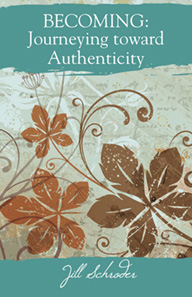
Cancel, Cancel… What the heck does that mean? Cancel, Cancel surfaced recently, and again, in my life as a way to say Negativity just ain’t no use. I first heard it in a relationship context. Harville Hendrix and Helen Hunt suggest that “Zero Negativity” is a key guideline to healthy relationships. They have a “Zero Negativity Challenge”, and I find this article in the Huff Post explains it very well.

In the end, it’s actually stronger than Negativity ain’t no use. Negativity, whether in the form of judgement, criticism, put downs, superiority…is actually destructive, harmful… I have come to feel its deep toxicity. I’ve written about this before, but the skillful means of saying Cancel, Cancel when I notice negativity is new, fresh, and quite helpful.
These last few weeks I’ve been taking a course called to invite shifting into deeper and ongoing well-being, waking up to our presence and spaciousness. One of the practices introduced was called Cancel Cancel. The instructions are fairly simple: anytime you find yourself thinking a negative thought, just say to yourself, Cancel Cancel.
For a few days I found myself really appreciating it, and realizing I don’t need the unconscious running commentary, such as. “Darn, it’s drizzling now, and I thought I was going to rollerblade”, or “What a bother! The laundry room is full and I wanted to do the wash…” I saw just how many habitual judgements, evaluations, moaning my habitual self was cranking out! Eliminating the negativity, and simply accepting things as they were, (the weather, the state of the laundry room…) was cleaner, softer, more open. I felt more space, and acceptance came more easily. Simply put, there was greater well-being. All with just saying Cancel Cancel when a negative thought popped up.
Then a few days later I had a backlash. In my head I ran a slew of recent and ongoing events, serious and significant like George Floyd’s death and racism, Covid and its aftermath, economic and climate concerns …OMG the list is long and wide-ranging. And I said to myself, “I can’t just Cancel Cancel all that”. That feels like PollyAnna or an ostrich with its head in the sand.

After I sat with that for a while, I actually posed that question to the course instructor, Jeffery Martin. He responded that while it’s complex and has many layers, the short answer is “Yes, the Cancel Cancel rule applies even to negative thoughts about grave issues. Try it out and see what you find.”
And so I did. What I found was pretty illuminating. My negative thoughts tend to have some version of judgment, blame, “wishing it were different” at their core. It’s one thing to observe: Covid is having a very high cost in terms of lives and livelihoods; to accept that; to feel into that; to take whatever actions are are appropriate — to write letters, to grieve, to say prayers, to meditate, to do loving-kindness…
AND I noticed that when I add the negativity to it, “That sucks; I hate it; I wish it weren’t that way…”, not only does it not help at all it is actually worse… it puts me in that negative place too. Instead of being with, accepting, holding, and seeing the choices about what response I will take, I am likely to get lost in hate, anger, helplessness, yes, judgment and blame.

So here’s a consideration for a tool in your toolbox when you find yourself saying negative thoughts about yourself, about your partner, about the weather, the world, about anything at all… Try saying Cancel Cancel, and see what happens.
Jill Schroder is the author of BECOMING: Journeying Toward Authenticity. BECOMING is an invitation for self-reflection, and to mine our memorable moments for insights, meaning, andgrowth. Check the website for a sample chapter, or see the reviews to get a flavor for the volume. Follow me on Twitter, let’s be friends on Facebook.



2 comments
Charlie Kothe says:
Jun 15, 2020
Rayshard Brooks. As you so earnestly become your own journey, which takes you onto a road less traveled by most of us who quest for an authentic life, you are willing to endure some rugged terrain Jill. Cancel cancel is a case in point. How do we confront injustice without getting mired down in negativity? A young man, a black young man, falls asleep in an inconvenient place to take a nap. When was the last time a person whose original infraction was falling asleep in his car ended up being shot and killed? What motivates people to protest but a sense of outrage, which is at least a close cousin to negativity? Most of the Old Testament prophets were energized by their negative assessment of those in power. The challenge is to move beyond the gravitational pull of negativity and focus one’s attention to positive change
Already There says:
Jul 3, 2020
Gosh, Charlie, sorry for the delay in responding to this thoughtful comment. I missed it until today. Yes, It is a real question: is a response from a place of outrage equal, just as beneficial, as action taken from a place of radical love. Surely we can add urgency to the motivation without sullying it. Big, interesting, crucial questions.